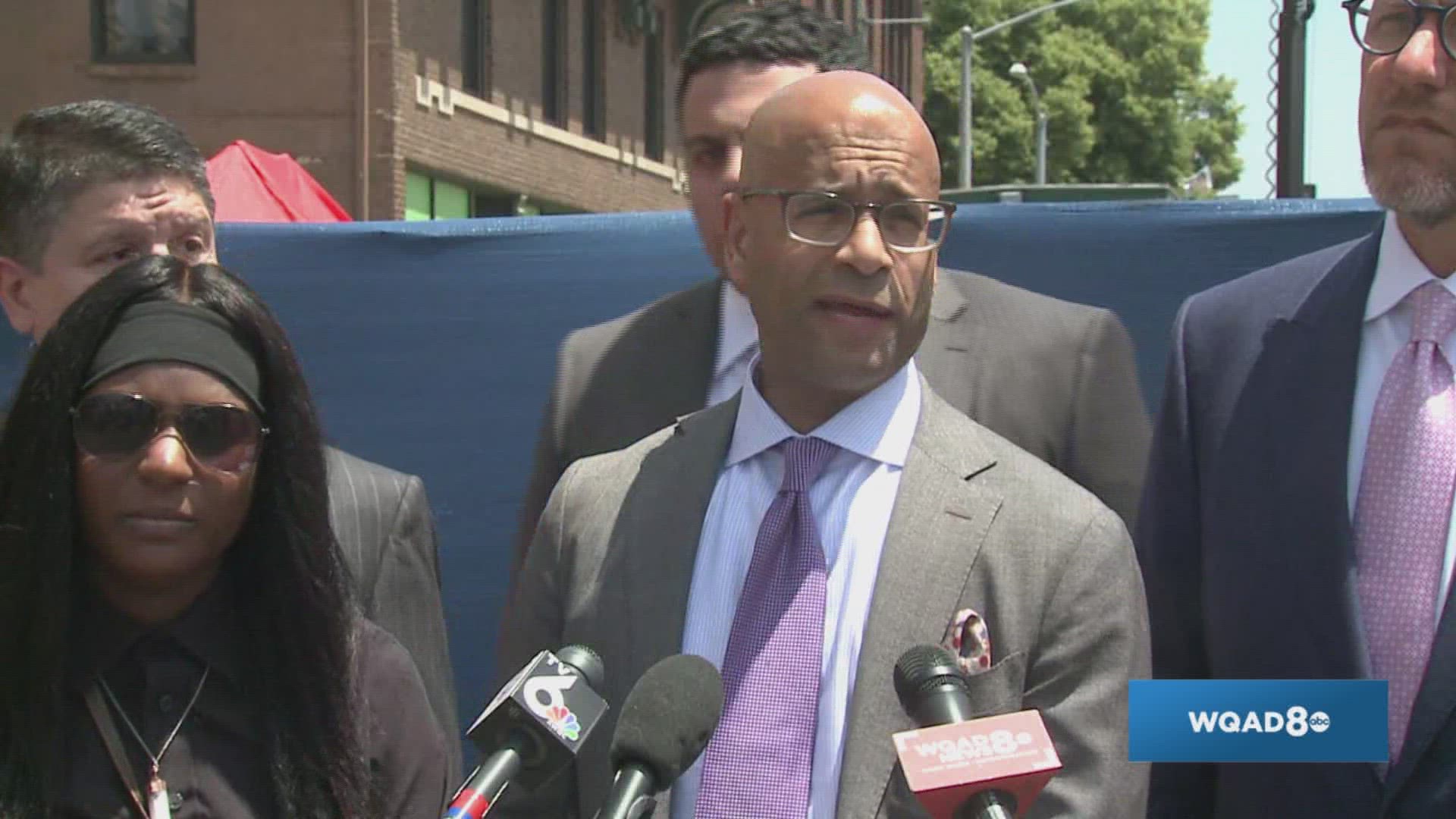DAVENPORT, Iowa — A woman whose leg was amputated in order to free her from the rubble of the partially collapsed building in Davenport, Iowa, filed a lawsuit with her wife Wednesday, accusing the city and the building’s owner of “willful and wanton disregard” of their safety.
Quanishia “Peach” Berry and her wife, Lexus, were home in their fourth-floor apartment May 28 when the west side of the building crumbled. Lexus Berry was able to evacuate, but it was hours before rescuers found Peach Berry trapped in the debris and determined they would need to amputate one of her legs to pull her free.
“My wife is a very strong person, and I am, too,” Lexus Berry said at a news conference Wednesday. “All that we want is accountability to be able to have closure and to know why this happened, and to be able to move forward with our lives.”
“We are survivors,” she added.
The couple seeks unspecified damages to compensate for the medical bills, emotional distress and lost wages, according to the filing.
The lawsuit is not the first, and likely not the last, to be filed in the days since the building’s May 28 demise, which left three people dead, many injured and dozens displaced. Two other lawsuits have been filed.
City documents, released last week and cited in the lawsuits, suggest concerns were conveyed to the city and property owner Andrew Wold over the course of months.
Tenants also complained to the city in recent years about a host of problems they say were ignored by property managers, including no heat or hot water for weeks or even months at a time, as well as mold and water leakage from ceilings and toilets. While city officials tried to address some complaints and gave vacate orders to individual apartments, a broader evacuation was never ordered, records show.
“The owner of this building was aware, the city of Davenport was aware, the engineering companies and construction people were aware. This was a completely preventable tragedy,” said attorney Andrew M. Stroth, who is representing Peach and Lexus Berry, in an interview with The Associated Press.
Efforts now have shifted to removing debris and dismantling the structure. Gov. Kim Reynolds on Wednesday asked the White House for reimbursement for the response and assistance with the demolition of the remaining structure.
The formal request for an emergency declaration comes more than a week after the partial collapse and two days after Reynolds was on the site of the building to tour the damage and receive a briefing from city officials. The governor issued an emergency proclamation on May 29 to deploy state resources to the response.
Reynolds’ letter to President Joe Biden asserts that the partial collapse “is of such severity and magnitude that effective response is beyond the capability of the State and the affected local governments.” The emergency response is estimated to be at least $5 million, according to the governor’s request.
The White House did not immediately respond to a request for comment.
There will be no federal investigation of the collapse. The National Institute of Standards and Technology investigates some of them, but only when the findings could lead to recommendations that would reduce the risk of future disasters. The Davenport building is simply too old for an investigation to lead to things like building code updates, said Jennifer Huergo, a spokeswoman for the agency, in a written statement.
Huergo stressed that the agency was “disturbed” and following the situation.
Davenport officials earlier said they were working to ensure that Wold would be billed for demolition costs. City spokeswoman Sarah Ott didn’t immediately respond to a message about those efforts in light of the request for federal funding for demolition and cleanup expenses.
Wold released a statement dated May 30 saying, “Our thoughts and prayers are with our tenants.” He has made no statement since then, and efforts to reach him, his company and a man believed to be his attorney have been unsuccessful.
Watch more coverage of the collapse on News 8's YouTube channel
___
Associated Press writers Scott McFetridge in Des Moines, Iowa, and Heather Hollingsworth in Mission, Kansas, contributed.

